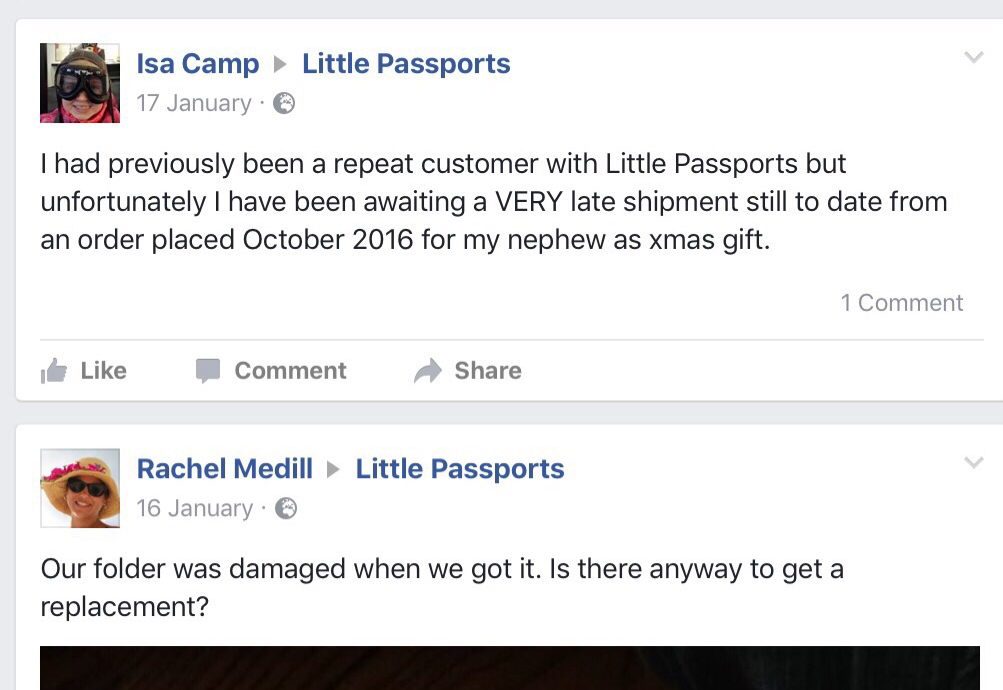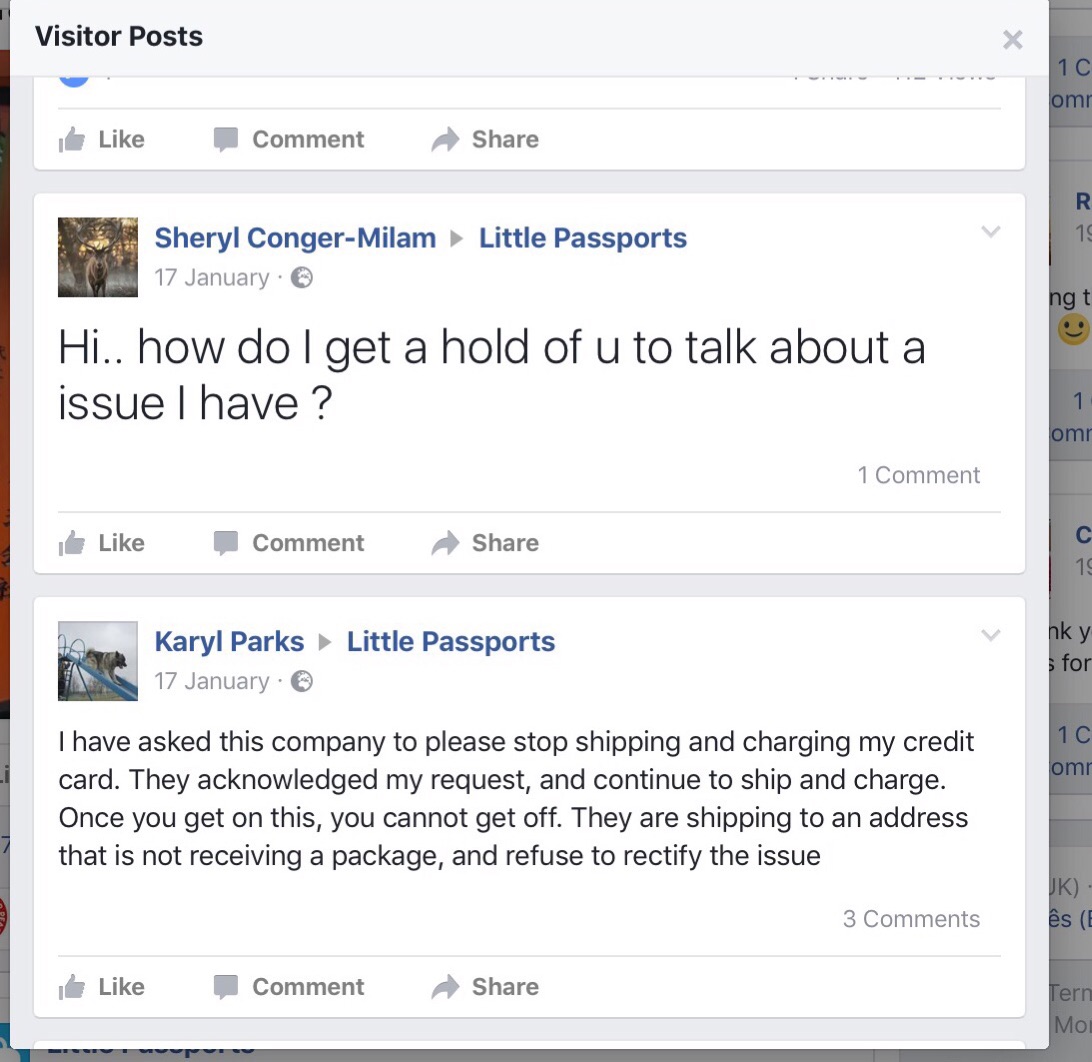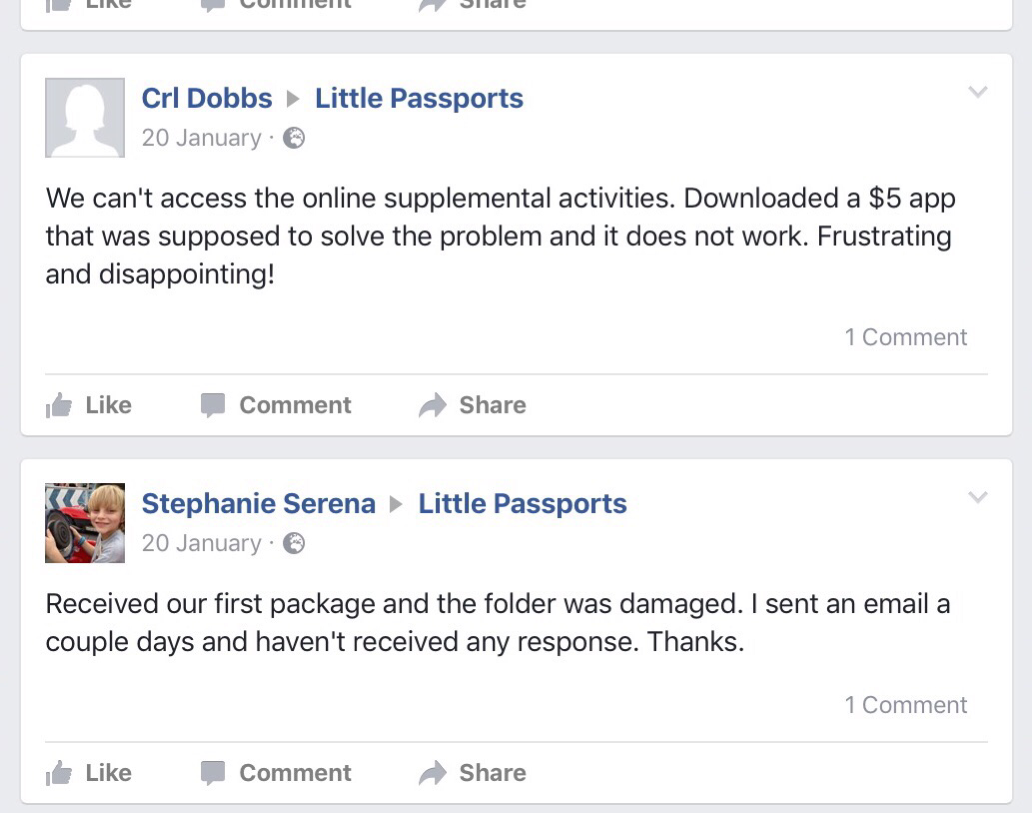I heard someone mention using MyTutor to find tutors for their kids so I decided to check it out, as I use tutors for my own kids and have done for the past 10 years+.
The website is not as straightforward as other tutor agencies I’ve used. They ask for your telephone number, email address, full name, etc through many steps, just to finally give you a search result of some of their tutors who seem to fit your search requirements. In my case, I simply typed that I was looking for a Maths GCSE tutor.
Their database has literally hundreds and thousands of student tutors, so I’m not sure why the search result only yielded seven and when I clicked on “see more” at the bottom of the page, there weren’t more search results.
Most noticeably, the tutors they have searched up for me are all undergrads or very young recent grads, with 5 out of 7 of the search results charging over £30/hr for their services.


This final year student charged £32/hr.

And this second year student charged £38/hr!

This is really hilarious. I wonder if these young people are overestimating their abilities. I currently pay £30 to £45 per hour for all my kids’ tutors, who are all trained teachers (PGCE holders) with years of experience teaching in schools, come highly recommended by word of mouth via other home-educating parents like me.
I read some of the reviews these overpriced young undergrad tutors had on the MyTutor site. Clearly, these parents aren’t very clued up about tutoring prices and qualifications if they were willing to pay such prices for tutors so unqualified. The good thing was that none of these tutors appeared to have hundreds of reviews. All were between 20 to 45 reviews. I suppose most other parents who are used to paying for tutors, like I am, know the score and would never fall for this type of trap.
It’s really an unfortunate scenario. Sites like MyTutor have caused the tutoring industry in this country to burgeon. They appear to mostly attract undergraduates, and I blame a popular undergraduate website called “Save The Student”, which offers tips and tricks for young people who are looking to go to university, for recommending that undergrads work for MyTutor as a way of earning income while studying, to supplement the government-funded means-tested maintenance loans, which for most undergrads except for the ones who come from the lowest 20% income families in the country, will not be sufficient at all, requiring either their parents to top up with cash, or students to make the cash through part time work. We can also see here, how a government’s decision to underfund public education has a knock-on effect on other industries and families’ lives.
Back to MyTutor. How do undergraduates who were mostly children not so long ago themselves, end up in a situation where they feel entitled to charge such ridiculous overpriced amounts to unknowing parents? It appears that MyTutor encourages this scenario. On one of their website pages, it appears that they allow tutors to increase the rates they charge as often and as high as they wish, after they have been tutoring for a mere 6 months!

I have been home educating for many years, and I have even helped put my eldest through all 7 of her GCSE exams myself with no private tutoring, so like most very seasoned home educators out there, I know how important it is to know the specifications, exam boards, and syllabi of each board for each examinable subject. One of the hardest things for me during that time was working out where my daughter stood in terms of her writing standard, as compared to her schooled peers. Although I have a degree in Philosophy and can write essays easily, I know I cannot judge my daughter’s writing standard based on my degree-level standard. What I needed to know was what the majority of her cohort’s writing standard is like, and having never taught in schools for years for that age group, I simply have no idea. It would be wrong of me to grade my own daughter’s essay a C or a D just because she isn’t writing them to the standard that I could, but I couldn’t grade her an A or B either if that wasn’t an accurate estimate of her abilities. I didn’t want to set her up with false hopes, nor did I want to crush her confidence with inadequate marking criteria which could turn out to be unnecessarily harsh. That was when I employed the services of Mark My Papers, set up by an experienced home educator no less, which utilises the expertise of a range of qualified teachers and board examiners to mark every single assignment and essay submitted to them, for a very reasonable fee. I was charged around £30 at the time for having them mark her attempt at doing a full exam paper, and I was charged around £11 for them to mark a 2-page, 10-question assignment on a topic in Chemistry, which I obtained online which came with no answers. It was very reasonable, and all marked assignments came with constructive feedback.
All these overpriced undergrad tutors at MyTutor with zero examiner and classroom teaching experience of this year group would have very little clue as to what standard of work is needed to achieve an A or a B, let alone knowing what exactly do examiners look for in their answers, and they have the cheek to charge more than my local 1-1 tutors who are ex-teachers and very experienced. They may try to claim that they know the exam boards and specifications well, but they aren’t classroom teachers nor examiners, so I’m sorry, it’s all BS. They don’t know the exam boards and specs that well, and they certainly aren’t knowledgeable about what examiners look for when they set exam questions, or mark exam scripts. They know just as much as I did about it, basically.
It’s really easy for anyone to Google up exam boards and specs for every subject. Yes, one might be able to read them online and even print them out, but that certainly doesn’t mean one knows what examiners consider a good answer, and what isn’t. A uni undergrad/young grad tutor without teaching qualifications or examiner status is basically just someone who went through the school system and got maybe A’s in the subject they are teaching, but this doesn’t mean they have the knowledge of an examiner or a classroom teacher about what RANGE of answers can be classed as good answers. They only know that their own answers (or maybe their good friends’ answers) were classed as good, but it is evident that there can be a whole RANGE of answers classed as good. I know this because, long story short, I didn’t think my daughter’s essays were good, but the examiner obviously did, as she got an A. I got As too in all my essays at school, so I know all too well what this is about. So no, I’m not going to pick some overcharging undergrad tutor who has an over-inflated ego about their teaching abilities, over someone older and wiser who had experience as an examiner (setting questions and marking scripts), or someone who had x amount of years of classroom teaching experience in schools for my children’s age group!
However, I then spotted this other page on the MyTutor website which explained a bit more as to why their undergrad tutors charged so much. Apparently, the company also takes a significant cut of their undergrad tutors’ hourly pay rates.

An undergrad tutor charging the highest rate of £43/hr apparently gets a take-home pay of £30.50/hr, whereas one who charges the lowest rate of £20/hr gets a take-home pay of £10/hr. This means that MyTutor takes £10/hr to £15/hr for each hour that any of their undergrad tutors teach. I approached one of these tutors, the one in her second year of uni, who asked for £38/hr to tutor Maths GCSE. I asked her if she could drop her price as this is well over the price of local tutors who are ex-teachers. She refused to budge on the price, saying that the price corresponds to her expertise and experience. What arrogance! Expertise?! These undergrads are charging so much for their tuition, because they’re just trying to take home more pay at the end of the day, after MyTutor gets their cut. These young shoots have no concept of the average living wage, nor the financial burdens and worries of parents, and they underestimate what is required to get through a PGCE or to become an examiner. It’s a very clever scheme from MyTutor, and guaranteed to bump up the average price of tutoring, undercut well-qualified tutors who have PGCEs, while at the same time, encouraging these young undergrads to completely overestimate their abilities at teaching. Meanwhile, this situation ensures that MyTutor, the agency, makes a healthy profit each month!
None of the tutors I use (who are all PGCE holders with many years of experience in schools) charge more than £30/hr at the moment. Haggling is commonplace. Why shouldn’t parents haggle? Look at the ridiculous prices undergrads are charging on MyTutor. The tutors I use know and understand that they are being undercut by undergrad tutors all the time. It is frustrating to them as they have gone through the trouble of taking actual teaching qualifications and gaining teaching experience in schools (school salaries are much lower in terms of hourly rates compared to private tutoring), just to see some young shoot try to get the same amount as they are charging, or trying to charge half the price and drawing clients away.
Most of these well-qualified and experienced ex-school teachers who tutor have families to support, and sometimes they will compromise when parents haggle. It depends on whether the parents are sincere, whether the child sounds worthy of teaching for a lower price, etc, and sometimes they just need the money because they’ve got kids to feed and maybe are having a bad month financially – whatever their reasons. They’re also far more savvy about the financial issues that most families in Britain have these days, with low average wages in the UK (currently at just under £15/hr, or £576 a week, according to the latest ONS report) so that’s the majority of the population, they are aware that for many parents who pay for tutoring, they probably make more per hour than the parents do, so any parent paying for tutoring is making a huge personal sacrifice for their children. A young undergrad who attends one of the Russell Group Unis and thinks he/she can charge as much as a qualified teacher has little life experience, might possibly have come from a middle class background and lived a sheltered life, when we consider the fact that three-quarters of the students in the top 22 unis in UK (most are RG unis) are from private schools, which indicate what sort of family background they have. These kids will not be able to empathise nor understand the realities of the working class family who has to consider sacrificing a huge portion of their paycheck and pay a tutor earning double of what they earn an hour, in the hopes of improving their children’s grades.
Sites like MyTutor are driving up average tuition prices, but as we all know, basic economics states that the market is self-adjusting. You can drive prices up all you like, but if it is way out of range of the local populace, then it will backfire on you. There will be less demand for high-fee tutors who lack teaching qualifications and classroom-teaching or examiner experience. Parents will be more reluctant to pay for the increase in prices, and the existing ex-teacher tutors, who are mostly very keenly aware of the realities of the working class family, will be happy to consider not upping their rates to match the overcharging undergrad tutors. Some, but not all, will be happy to lower rates slightly (or even significantly) for the motivated, talented child who has trustworthy and sincere parents who won’t try and act in dishonest ways. Some tutors of course, set out to only cater for the middle class, so won’t be keen on reducing rates for working class families. That’s their prerogative. I don’t live in London, thankfully, where tutors can charge astronomical rates of nearly £100/hr and still be able to get clients. I live only in a small city with lots of working class folk, where everyone knows everyone, almost! Well, I’d say that almost everyone here may know someone who knows someone who’s a tutor, so the tutors here are all very much part of the community, all ex-teachers, very experienced, and very understanding of local parents’ predicaments. I’ve not paid any experienced PGCE-qualified tutor locally any more than £30. It works here. All I’m saying is that tutors and agencies can charge whatever extortionate amount they want, but that’s being very unrealistic. Supply only corresponds to demand. There is an increase in demand for tutors since the pandemic and the patchy teaching offered in many schools during that time, but the problem is, this demand for tutors is based on the premise that they are affordable. Not many parents who earn less than £20/hr would be happy to pay for a tutor who earns double that, and when sites such as MyTutor are actively encouraging unqualified, inexperienced young undergrads to charge these ridiculous prices, I would like to burst their bubble here. I’m sorry, but you’re not fooling me, and I will continue to warn other parents I know in person and online about this.
The pandemic and the rise in the number of homeschooling parents since has caused also another issue – a burgeoning online school industry. We’re seeing an average of a new online school opening every week. On many home educating groups, we get new home educators asking for info and reviews on some new-fangled online school that most of us experienced home educators have never heard of previously. And these online schools aren’t cheap. Most of them charge per hour just as much as I pay a 1-1 PGCE-qualified tutor locally. And these schools always charge some dubious registration fee which they refuse to refund if you don’t take a place, even if they hadn’t turned away anyone due to you paying a registration fee but not having yet picked out a course to do.
Actually I know for a fact that Absolute Maths, an online Maths tuition company made up of a family who home-educate themselves, are very popular in the home educating community, and they will never not refund a deposit paid for a class, unless they couldn’t find another family to take your place. And that’s how you do business with home educators. We all give up jobs to home educate, losing a significant portion of income just to do what’s best for kids.
However, most online schools don’t have home-educators’ best interests at heart. They’re just there to make a quick buck. They promise the world with their snazzy website branding and savvy marketing, tugging at parents’ love and concern for their children’s futures, but they’re actually not very good at supporting SEN children as their classes are often delivered in a very set way – online whiteboard, online chat box, speaker and microphone muted for most of the lesson and only allowed to speak at certain times. We know our SEN kids need to be constantly observed and gently assessed during lessons in order to have a good idea of what is working fo them, what isn’t. Teaching SEN kids requires us to be flexible at all times, willing to change our lesson plan, or review and recap concepts often and whenever the need arises, not as planned. Many parents of SEN children who withdrew kids from school during the pandemic as it had made them realise how inadequate schools were for them, have a tendency to then sign up to one of these new-fangled online schools in the hope that their kids could continue to be taught in a school-style but with more individualised teaching. I’m afraid this is not actually very achievable even in an online school setting, as they face the same constraints as school with regards to lesson delivery, though to a smaller extent, as their classes might be smaller than school classes, though not always. The one improvement parents might see though, when switching from conventional schooling to online schooling, is that parents are more involved in the child’s learning, as they can actually see the lessons in progress and intercept if they need to, or withdraw their child from an unsuitable education provision at home soon after they can see it’s not working for them. Unlike conventional schooling, where it often takes weeks or months before a parent may be aware of the unsuitability of a school.
Another drawback of online schooling is that it does require that the child can maintain more than a modicum of attentiveness during the lesson. Of course, the drawbacks of online schooling vs conventional schooling are never mentioned on the many online schools’ websites. Face to face lessons put more social pressure on a child to pay attention to the teacher during lessons, as teachers can read whole body language to find clues as to whether their students are paying attention in class. In an online classroom, it is difficult and impossible for the teacher to read their students’ body language to the same extent as they can in a face to face lesson. It is worth pointing this fact out – an online classroom gives the child many ways of escaping the teacher’s glance. If your kids have some condition like ADHD, then forget online schooling unless they are only attending classes in subjects they are obsessed about (ADHD kids are amazingly able to hyperfocus intensely on subjects dear to them). My kids have often told me about classmates in the online classes they’ve attended, who appear to have left the computer for most of the duration of the online lesson. These classmates were completely unresponsive whenever the online teacher asks those students to answer questions, so appear to be away from their keyboard, and they only seem to return to their computers about 5 mins before lesson ends to type in the chatbox messages such as “Class is finishing..” or something to that effect. Now, I am hoping the online teacher reports to these students’ parents about their children’s unsatisfactory participation in lessons, but how much can the parents really do about that, if the parents are say, away working during the day, for instance, and cannot physically ensure their kids stay in class? These things happen again and again in each lesson, unfortunately. It’s clear parents are throwing their money down the drain when they pay for online schooling but are unable to ensure their kids physically attend the lessons. If they had sent their children to a physical school, then the teachers would never allow kids to physically skip lessons. There would be rules and punishments put into place to prevent that. Not that I, as a home educator committed to allowing my kids to follow their interests and not be confined to the rigidity of a school curriculum and arbitrary punishments, would be happy to put my kids in a conventional school unless they wanted it, of course, but I’m just putting myself in the shoes of the parents who pay for online schooling but their kids are skipping lessons all the time with little to no consequence other than perhaps, failing their exams if the lessons led to exams. What’s the point in that? Their kids need a babysitter/childminder/nanny, not an online school.
For me as a home educator, I have found that enrolling my kids onto online lessons doesn’t mean I can just leave everything to them and the teachers to get their education taken care of. I still need to draw up timetables for my kids to show them when and what lessons they have to remember to attend on time, I still need to check that they aren’t missing lessons, or not doing their homework. I still check the grades they get and the marking feedback to make sure they are learning effectively, and to ensure I get my money’s worth. If the lessons aren’t teaching them much, if they’re not enjoying the lessons, then I have to consider finding them alternative teachers/classes or doing it myself. It actually isn’t that much less work than sending them to conventional schools, though there is far less peer pressure involved and no more bullying issues for the most part – except for one time there was this online classmate of theirs who kept drawing Nazi swastikas during lessons on the whiteboard and then accusing my daughter of doing it… but that wasn’t even bad bullying, in my eyes. A world’s away from schoolground bullying, which is more intense. The good side of online schooling/lessons is that yes, the children remain to a certain extent, detached, from the other classmates. They can still joke with each other, or banter a bit in class when the teacher allows it, but any sort of rude encounters don’t seem to grate as much, and thankfully, the online school/lesson teachers we have used have always been vigilant and action has always been taken swiftly whenever disruptions and bullying happen.
Now if you’re pretty certain that your child is a good candidate for online schooling, the only online school I can recommend as I have had a positive personal experience of it, is Net School, because they have been in the online school business for such a long time, for almost a decade or so, and they started out almost exclusively serving the home educating community. They have a glowing reputation in the community, and having dealt with their headteacher, I have nothing but praise with the professional and understanding manner in which they deal with all difficulties that occur during lessons with their students. I wouldn’t trust most other online schools. Don’t trust Interhigh either, as they report parents to the Local Authority if the parents withdraw their children from their courses (which is wrong, because a parent is not automatically guilty of not educating their children just because they withdraw from Interhigh!) It’s not like they’re the only online school out there, and it’s not like plenty of cheaper and better tutoring options within the home-educating community don’t exist! Plus, what I’ve heard from other parents who have used Interhigh (not just online folks, but people that I know personally) is that Interhigh classes don’t stretch their kids much, teach to a baseline C grade type of classes, so parents whose kids are well capable of grade A’s often have to provide their kids with extra work at home to stretch them. Also, Interhigh fees are very expensive compared to other tutoring options popular with home educators, and Interhigh like to charge a term’s fees in advance which is non-refundable if your child doesn’t suit the lessons and wants to stop attending them – I personally know another friend who got caught out by this.
I’ll conclude by saying that we can all be carried away by our fears about our children’s progress in life. We can cave in easily to pressures when times are hard. We all go through periods where we think we’re not doing enough with our kids. This is part and parcel of home-educating life. I wrote this post to warn others about what I consider to be an alarming increase in the numbers of unqualified, young, undergrad tutors who overcharge, and the numbers of online schools which charge expensive prices for what might be subpar provision. I mean, who oversees these schools? I’m not for once advocating the involvement of Ofsted because I know Ofsted is quite useless when it comes to evaluating good quality schools. I have sent my eldest to 3 schools in the past, all highly-rated by Ofsted, with no bad remarks and being given the highest ratings. They’ve all turned up short, their teachers are all only so-so, SEN provision for my daughter was bad, and all of them were arrogant enough to always blame a child’s poor performance in school at the parents but not themselves. If anything, my take-home impression was that a good Ofsted rating might actually cause a school to be less humble and less able to admit their faults when they have committed them.
I’m not advocating for online schools to be vetted by Ofsted at all. No. In fact I believe internet schools aren’t Ofsted-inspected at all. However, the Department of Education is in the process of setting up an Online Education Accreditation Scheme (which will allow online schools to apply for accreditation next year) which purports to assure parents that any of their qualifying education providers under this scheme will be of a certain standard of quality in terms of the education provided and safeguarding procedures undertaken. Schemes like this may be a bit better than nothing, because to be honest, too many online schools are springing up these days and there is no way we can know if they are all legit, if some of them are scammers, if they vet their teachers well, and if they can be trusted with our money ! I’ve already elucidated on the uselessness of Ofsted at determining what really good schools are about, but… and this is a huge but – the scheme may, at least, ensure that schools have a responsibility to meet a minimum of their duties, namely in keeping kids safe. There is a local school in my area which I won’t name, where many pupils there have suffered horrible abuse and bullying by fellow students for ages. There were some serious race/ethnicity wars some years ago locally, since this area has a very high number of immigrants, and the serious assault problems in the school went unfixed until parents worked together to notify Ofsted about their concerns, which triggered an Ofsted inspection, which found the school guilty of not doing its duty and it was put into special measures shortly. That was an extreme example, and also very less likely to occur in an online school simply because if someone is bullying another in an online teaching session, the teachers can easily block the perpetrator’s access to the lesson chat box or messaging facilities, so they cannot contact their victim, and in all online lessons we’ve tried, students’ surnames were always anonymised anyway, so it would be quite difficult for a class bully to find out where someone lives or what their parents did etc. I suppose the Online Education Accreditation Scheme may well at least ensure the education is of a bare minimum passing quality, but it is still no guarantee that all the money you’re paying is money well-spent. It will certainly not guarantee that the education is top quality.
If you home educate, and if you’ve been doing it as long as I have, you’d be able to spot right away that all these fancy accreditations are nothing but emperor’s new clothes. You’d also be able to spot that all these overcharging young undergrad tutors in MyTutor are also laughably hubristic. If I could give new home educators one warning, it would be: Don’t pay out for education provision yet. Try and lean into the home educating life a bit. Get to know your child’s learning styles a bit better. Get more involved in their learning. This will only benefit you and save you money in the long run from extortionate tutors and online schools, as once you really get to know your child’s learning style better, you’d be less easily taken in by these overcharging tutors/online schools claims that they can deliver a top-notch education to your child if you hand over your hundreds of pounds to them. The home education law is mostly on our side here in the UK. There is, as yet, no requirement for the children to complete any school exams by any age. So please relax. Spend more time with your children while you settle into home education. Try and enjoy the ride and settle those niggling voices of fear in your head. You’re not going to do a bad job. You’re only going to do what’s right for your family.
And finally, if and when you really think you need a private tutor or online school for your child who is working towards GCSEs, please join the following Facebook groups to ask for advice and recommendations of good ones for home educators – you won’t get a load of people pushing their services on you, but rather, good, thoughtful, experienced advice from home-educators who have gone without tutoring and successfully got their kids through their GCSEs and A Levels, as well as those who have used tutoring – only go with the ones with a good number of positive reviews from experienced home educators; don’t use someone whom no one, or only one other has used, nor a service where no one says any good things about them :
Home Education UK Exams & Alternatives
HE-Exams@groups.io
If your child is under 10 years old, you wouldn’t be allowed to join the above 2 groups, but you’d be welcome to join this one below, which has also been around for yonks, and which I respect – I have seen their moderators around on home ed groups for as long as I’ve been home-educating, and so I know they are genuine home-educators and not out to sell tutoring services :
Home Education UK
The following group is also good if you’re a home educator and wish to access online group tuition classes for home-educated kids by teachers who work exclusively with home educated children – this is better than accessing tutors who work mostly with schooled children, as they usually carry a lot of misconceptions and negativity about home educated children, so in my opinion, there has been far less misunderstandings to clear up and a far smoother and pleasant experience for both home educators and their children when dealing with tutors from this group; the group is also moderated by very experienced long-term home educators who are qualified teachers themselves (you wouldn’t believe how many home educators were classroom teachers previously) :
UK Home Education Online Group Classes
Since the pandemic, many Facebook groups purporting to be for home-educators have sprung up, some of which are set up by proprietors of tutoring services themselves – and these should be well-avoided, in my view. I won’t name names for now, but if you’re reading this, you know who you are. I’ve only so far recommended Facebook home ed groups that in my view are legit, full of experienced home ed folk, and which would not be easily swayed by snazzy, newcomers on the block which are out to get your money. They are owned and manned by several experienced home-educators who have been around the home ed scene for the past 10 to 20 years or so, used to DIY-ing their own exam preparation and not relying on online schools or tutors, but have also utilised some online tutors before, so can give their own experiences of it, and many of them are local home-ed group face to face or local online group tutors for local home-educating communities as well. They truly put back into the community what they take from it. My kids have attended some of these kinds of local home-ed group tutor classes led by home educators who were either degree level graduates or were ex-teachers themselves, and they are always very affordable at £5 per child a lesson roundabouts, because they are mostly not-for-profit organisations and individuals who believe in the goodness of home education and just want to support their own community – not to bleed the community’s money dry. None of that extortionate BS that MyTutor’s overpriced undergrads and the new wave of online schools which sprung up during the pandemic years charge…
If you can’t find your local home ed group on Facebook, where local home-ed group tutor classes would be advertised, please check here at the Local Home Ed Group Directory for your local, nearest home ed group.
I would also add that if you want a tutor and you look locally for one, you’d probably be able to find some well-qualified ex-teacher who would do it, for the same or less than what the overpaid undergrad tutors on MyTutor are asking for. And even if you did find an undergrad tutor locally willing to tutor face to face, at least you can actually assess the tutor in person and get a much better feel for their teaching expertise by observing how they teach etc. If they aren’t comfortable with you even sitting in for one lesson to observe, then I’m sorry, you have to ditch them, because they should have nothing to hide and be plenty confident about their abilities to teach in front of the parents paying for their services. If they can’t do that, then they either lack maturity, experience, expertise, or all three, and you can cut your losses much faster that way. All the experienced, ex-teacher tutors I’ve hired before were happy and confident for me to sit in with my kids on at least one lesson to observe how they teach, whether face to face or online, but mostly face to face. Of course, since they had to undergo many observations of their in-class teaching during their PGCE and also during their school teaching career! An online tutor like one from MyTutor however, is not so easy to assess. I mean you could sit next to your child during the lesson to observe, but a lot of people look very different online than in person. I am a believe in meeting a person face to face to really know what they’re like. There is so much beyond the words they utter. There is body language, confidence, etc. Unless the undergrad tutor you’re hiring locally is not charging exhorbitant prices for their services, then you may be okay to put up with their lack of experience/maturity, but in my opinion, I’d rather not have to deal with this and have one more child to “look after” in the form of the tutor, but that’s me personally.
P.S. If you’re a service provider reading this, thinking you’re going to try and get into these groups to advertise, forget it. Most of these groups are not going to allow you to do that. For genuine home educators only. We’re so used to the equivalent of “snake oil sellers” in the home ed community when it comes to this, and we don’t want our local grassroots groups to be inundated with sales advertisements of for-profit education/education material providers. Thank you for your kind understanding.
P.S.S.
We’ve so far had great experiences with the following online group lessons for home-educated children run by home-educators themselves or trusted ex-teacher tutors sourced by home-educators who had good track records teaching home-educated children (and which don’t cost extortionate rates like MyTutor or many of the dubious online schools set up recently with little positive feedback from home educators). What’s more, they probably cover most of the GCSE subjects that home educators might want to take – we’re very fortunate indeed, as we don’t lack choice :
HEET
Candochem
The Language and Learning Lab
My Language Club – Spanish, German, French
Net School
Absolute Maths
Yvonne Mason – UK English and History Tutor
Education Brothers
LESSONing the Load
Humanatees Home Tutor
LearnTec
We’ve also had fairly good experiences of using Oxford Homeschooling for KS3 Sciences, though I am aware that this particular company doesn’t suit everyone due to the text-heavy nature of the course materials and the variable quality of their tutors. We were lucky to have got a great tutor for our eldest, and we’ve always asked to use the same tutor for our younger 2, so it’s worked out well for us. Again, they only use experienced ex-teachers for tutors.
Apart from these, there may be other good ones I haven’t mentioned either because they weren’t right for us or we haven’t yet tried them, but it doesn’t mean they aren’t right for others, which is why I very much recommend you join the above-mentioned home educator groups to ask for other people’s recommendations and advise. I would strongly advice any new home educating parent to not pay for any tutors or classes until you’ve done at least some asking in the above-mentioned groups to see how many reviews there are of the tutor/online school you’re thinking of paying for.







